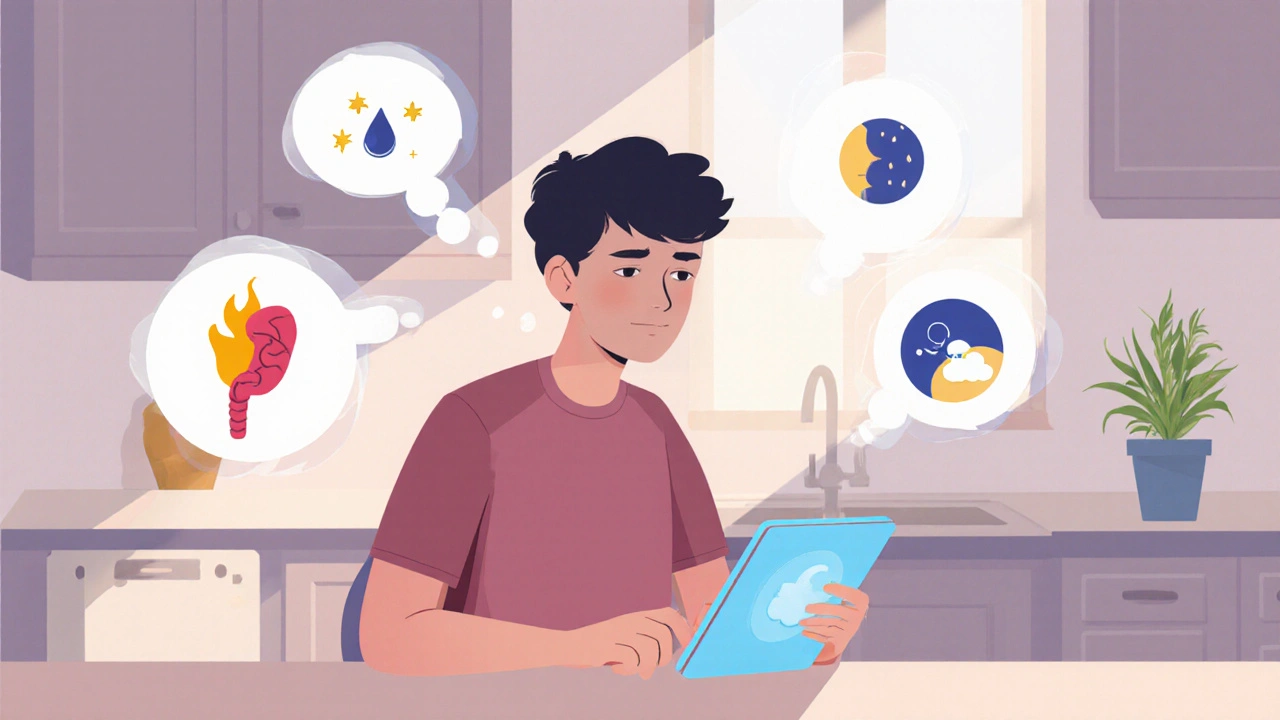How to Treat Reflux-Related Chest Congestion Fast
If you’ve ever felt a tight, heavy feeling in your chest after a big meal, you’re probably dealing with acid reflux that’s spilling over into your lungs. The good news is you don’t have to live with that uncomfortable pressure. A mix of simple diet changes, over‑the‑counter meds, and a few home tricks can clear the congestion and stop the burning.
Start with the Basics: What Triggers Your Symptoms?
First, figure out what’s making your reflux flare up. Common culprits are spicy foods, caffeine, chocolate, and big meals right before bed. Keep a short diary for a week – note what you eat, when you eat, and when the chest tightness hits. Spotting a pattern helps you cut out the real offenders without giving up everything you enjoy.
While you’re tracking, try these easy swaps: choose smaller plates, sip water between bites, and avoid lying down for at least two hours after eating. Even raising the head of your bed by a few inches can keep stomach acid where it belongs.
Medicines That Work – From OTC to Prescription
When lifestyle tweaks aren’t enough, medicines step in. Antacids like Tums give quick, short‑term relief, but they only mask the problem. For longer control, look at H2 blockers (ranitidine, famotidine) or proton‑pump inhibitors (PPIs) such as generic Prilosec (omeprazole). PPIs reduce acid production for up to 24 hours and are the go‑to for frequent chest congestion caused by reflux.
Buying generic Prilosec online can be safe and cheap if you use a reputable pharmacy. Make sure the site requires a prescription, shows a licensed pharmacist, and offers clear contact info. A typical dose is 20 mg once daily before breakfast; most people notice less congestion within a few days.
If you’re on prescription meds already and still feel tightness, talk to your doctor about adjusting the dose or trying a different PPI. Some people respond better to esomeprazole (Nexium) or lansoprazole (Prevacid). Always follow the doctor’s directions – stopping a PPI abruptly can cause rebound acid.
For occasional flare‑ups, a short course of an H2 blocker (like 10 mg famotidine at night) can complement a PPI and keep nighttime reflux from bubbling up into the chest.
Besides acid‑reducing drugs, a short trial of an expectorant (guaifenesin) can thin mucus that builds up from irritation, making it easier to cough out and clear the chest.
Remember: no medication replaces good habits. Pair any pill with the diet and sleep tweaks we mentioned, and you’ll see faster, longer‑lasting relief.
In short, treat reflux‑related chest congestion by spotting trigger foods, eating smaller meals, elevating your head while you sleep, and using a proven acid‑buster like generic Prilosec when needed. Keep a symptom log, stay consistent, and you’ll soon breathe easier.

How Acid Reflux Causes Chest Congestion and What to Do About It
Learn how acid reflux triggers chest congestion, spot overlapping symptoms, and discover lifestyle changes and treatments to break the cycle.
view more